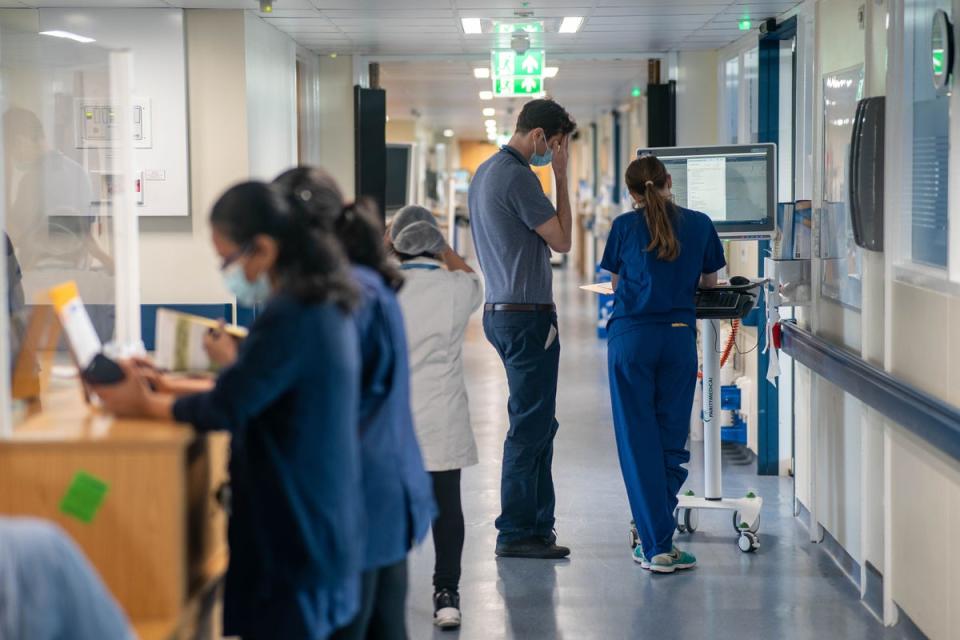Thousands of surgeons blame burnout as half consider leaving NHS – survey

Half of surgeons in England have considered leaving the NHS amid frustration over a lack of access to operating rooms, a new survey shows.
More than 3,000 surgeons contemplated quitting the health service in the last year, with two-thirds reporting burn out and work-related stress to be their main challenge, a new survey by the Royal College of Surgeons England has revealed.
As the NHS tries to reduce the 7.61 million waiting list backlog, the survey, covering one quarter of all UK surgeons, found that 56 per cent believe that access to operating theatres is a major challenge.
The warning comes after figures last week revealed Rishi Sunak looks set to miss his target to reduce the backlog.
RCS England president, Mr Tim Mitchell, said: “At a time when record waiting lists persist across the UK, it is deeply concerning that NHS productivity has decreased.
“The reasons for this are multifactorial, but access to operating theatres and staff wellbeing certainly play a major part. If surgical teams cannot get into operating theatres, patients will continue to endure unacceptably long waits for surgery.
“There is an urgent need to increase theatre capacity and ensure existing theatre spaces are used to maximum capacity. There is also a lot of work to be done to retain staff at all levels by reducing burnout and improving morale.”

The authors of the report said there is an “urgent need to increase theatre capacity by ensuring that existing theatre spaces are utilised to their full potential.”
The college called for more to be done to increase productivity, including ensuring all theatres are used to their maximum capacity, increasing the number of hospital beds solely used for pre-planned surgery, increasing the number of surgical “hubs” and increasing surgical staffing.
“Despite the surgical workforce regularly working long hours, productivity remains a key issue,” the report states.
The report highlights a number of problems, including some surgeons being on call for emergencies while having pre-planned work booked in, workforce issues and “theatre infrastructure”.
Elsewhere, trainee surgeons when asked why they would not recommend surgery as a specialty, were most likely to cite work-life balance and pay.
One said surgery was “mentally and physically draining, huge pressure with lack of support to achieve targets”
Another said: “If you are not ready to give your 200 per cent and sacrifice your personal life, you must not come to surgery.”
Their comments come as the NHS faces ongoing strikes from junior doctors this year.

 Yahoo News
Yahoo News 
